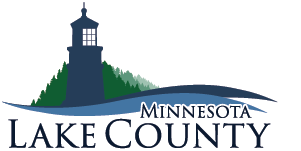Burning Garbage
Burning Garbage — Unhealthy, Unsafe, Illegal
Burning household garbage in burn barrels, stoves, and fire pits creates pollution that s dangerous to human health and contaminates the air, water, and soil. It is illegal for homeowners in Minnesota to burn their garbage. Burning garbage and prohibited materials has been illegal in Minnesota since 1969, and prohibited in Lake County since 1975.
Burning garbage illegally is a misdemeanor punishable by a fine up to $1,000.
What’s the Problem?
Small fires mean big trouble: Typical home fires are small and inefficient. They produce a lot of smoke as well as a variety of toxic substances—even burning seemingly harmless materials like paper is illegal.
Why?
- Garbage has changed-today’s household trash contains a lot of plastics and paper treated with chemicals, coatings, and inks.
- Smoke-pollutants from backyard burning of trash are released primarily into the air, and close to ground level where they are easily inhaled with no pollution controls
- Soot that is left contains concentrated amounts of these toxic materials that can blow away or seep into the soil and groundwater.
Danger Health Effects of Garbage Burning
Smoke from burning household garbage produces levels of dangerous toxins many times higher than a municipal incinerator. Smoke from burning household waste contains acidic gases, heavy metals, and dioxins. Inhalation or contact with these materials may cause serious health problems including eye and throat irritation, respiratory problems, and an increased risk of cancer.
Report Anonymously for Your Safety
If you suspect a neighbor or friend is burning prohibited materials, share this information with them, or report them to the Lake County Sheriff or DNR Conservation Officer. All reports are anonymous.
Burning Permits for Brush
You can burn vegetative material (grass, leaves, & brush} and unpainted, untreated lumber. There are restrictions on when and how to burn this material, please contact DNR Forestry for permits, restrictions or questions:
- Finland DNR Forestry: (218) 353-7397
- Two Harbors DNR Forestry: (218) 834-1420
- Tower DNR Forestry: (218) 753-2580
Do Not Burn
- Garbage
- Treated lumber
- Plastics
- Oils
- Rubber
- Shingles
- Construction debris
- Electronics
- Motor vehicles
- Hazardous waste
- Chemically treated materials
- Industrial solid waste
- Tires
- Railroad ties
- Pain
- Tar paper
- Insulation
- Wiring
- Composite board
- Sheetrock
